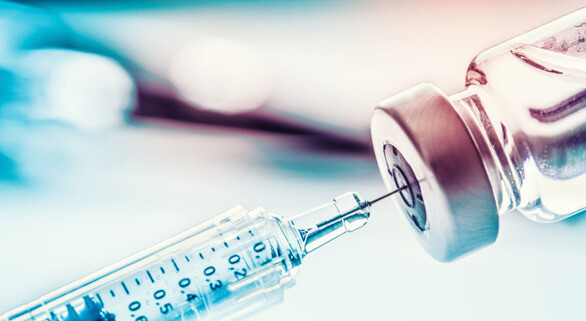INTRODUCTION: This is an update from our earlier report (Part II) regarding the use of the SARS-CoV-2 spike protein with two different adjuvants. The Phase I clinical trial results were presented in The Lancet by Richmond et al1. This was the first human trial of this subunit vaccine and was used to find the proper antigen dose and adjuvant justification using the stabilized trimeric spike subunit protein vaccine (SCB-2019). They used a Trimer-Tag method – a protein derived from the C-terminus of human type 1 procollagen that preserves the trimeric conformation of the SARS-CoV-2 spike protein, which has not been previously used in clinical trials.
DISCUSSION: This Phase I trial was a randomized, double-blind placebo-controlled trial in Australia. They enrolled two age groups, ages 18-54 and ages 55-75. Participants were randomly allocated to either the placebo or vaccine group. They received 2 doses of a placebo (0.9% NaCl) or SCB-2019 (either 3 µg, 9 µg or 30 µg) at 21 days apart. The vaccine either had no adjuvant (only the S-trimer protein)or was adjuvanted with AS03 (GSK Corporation) or CpG/Alum (Dynavax Technologies). Immune response was assessed for seven days after each vaccination. Humoral responses were measured as SCB-2019 binding IgG antibodies and ACE2-competitive blocking IgG antibodies by ELISA and as neutralizing antibodies by wild-type SARS-CoV-2 microneutralization assay. Cellular responses to pooled S-protein peptides were measured by flow-cytometric intracellular cytokine staining. 148 participants were followed for up to 4 weeks after 2nd dose. Vaccination was well tolerated with two grade-3 solicited adverse events (pain in 9 µg ASO3-adjuvanted and 9 µg CpG Alum-adjuvanted groups). Most local adverse events were mild injection-site pain, and local events were more frequent with formulations containing AS03 adjuvant (44-69%) than with those containing CpG/Alum adjuvant (6-44%) or no adjuvant (3-13%). Systemic adverse events were more frequent in younger adults (38%) than in older adults (17%) after the first dose but increased to similar levels in both age groups after the second dose (30% in older and 34% in younger adults). No consistent trends or clinically significant laboratory safety abnormalities were noted in any group at any timepoint. No cases of SARS-CoV-2 infection were reported during the study. No adverse events of special interest, including potential immune-mediated diseases were seen. This is of great interest due to past reports of vaccine-associated disease enhancement (VADE) seen with previous Coronavirus vaccines, such as for the development of vaccines for SARS in 20032. Anti-SCB2019 IgG antibodies did not increase after the first dose of non-adjuvanted SCB-2019 by day 22, irrespective of dose level. By day 50, three SCB-2019 recipients seroconverted, one of eight in the 3µg group and two of seven in the 30µg group. In both adjuvanted cohorts, SCB-2019 dose-dependent IgG responses were evident after a single dose in both age groups. All participants at each dose level of SCB-2019 with AS03 adjuvant seroconverted by day 36. After the 2nd dose of SCB-2019 with AS03 adjuvant, a very large increase in antibody geometric mean titers (GMTs) was seen; levels higher than those seen with convalescent serum samples and NIBSC reference serum. Antibody titers persisted at high levels at day 50. Small dose-dependent IgG responses against SCB-2019 with CpG/Alum adjuvant were seen at all dose levels at day 22 after one dose in young adults, which greatly increased after the 2nd dose. High GMTs were maintained to day 50. The vaccine with fixed doses of either AS03 or CpG/Alum adjuvants induced high titers and seroconversion rates of binding and neutralizing antibodies in both younger and older adults (anti-SCB2019 IgG antibody GMTs at day 36 were 1567-4452 with AS03 and 174-2440 with CpG/Alum).
CONCLUSION: This report shows high level neutralizing antibody responses, with a Th1-biased cellular immune response and an acceptable safety profile. Based on these results, 9 µg SCB-2019 adjuvanted with AS03 and 30 µg SCB-2019 adjuvanted with CpG/Alum were the preferred candidates to be used in the phase 2/3 trial.
REFERENCES:
1. P. Richmond, L. Hatchuel, M. Dong, B. Ma, B. Hu, I. Smolenov, P. Li, P. Liang, H.H. Han, J. Lian, and R. Clemens. 2021. Safety and immunogenicity of S-Trimer (SCB-2019), a protein subunit vaccine candidate for COVID-19 in healthy adults: a phase 1, randomized, double-blind, placebo-controlled trial. The Lancet, Jan 29 2021, https://doi.org/10.1016/S0140-6736(21)00241-5
2. S. Su, L. Du, and S. Jiang. 2021. Learning from the past: development of safe and effective COVID-19 vaccines. Nature Reviews 19,211-219. https://doi.org/10.1038/s41579-020-00462-y



